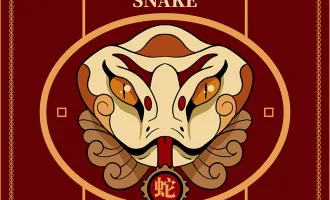
Honoring Creative Talent at UCSF
The results are in! Our judges have awarded the 12 best submissions to the Synapse Storytelling Contest by talented UCSF student writers and photographers. Find out who took the top prizes. Then be sure to read the Synapse newsletter and return to the website each week to enjoy the winning entries.
Creative writing:
First place: Batteries by Ninad Bhat
Ninad Bhat’s Batteries introduces an everyday, offhand idiom of the pandemic and turns to search for deeper meaning about stolen time, privilege, and racial injustice. With controlled and skillful turns of poetic phrase, the writer rapidly layers images atop one another and suggests that time spent in stillness, voluntarily or under lockdown, can open more questions about belonging than first expected.
Second place: Mirror by Manuella Djomaleu
Manuella Djomaleu’s Mirror flips the raw feelings of imposter syndrome during medical training into a search for the true roots of those feelings. The narrator blends visceral metaphors of sight, sound, and touch to ask again and again how many sacrifices must be made in a culture of discrimination. Moving from the physical to the psychological, the poem confronts the reader with what it really means to sacrifice one’s identity, leading to a final haunting question.
Third place (tie): Induction by Zoe Onion
Zoë Onion’s Induction invites the reader into a brief but poignant exchange between a medical practitioner and a patient during the induction of anesthesia. The poem beautifully portrays the delicate and almost-surreal work of the anesthesia team, and crisp details hint at the mingling of attentiveness and duty in someone entrusted to hold another’s consciousness.
Excerpt from the Art of Amateur Sadness by Match McGregor
Match McGregory’s Excerpt from the Art of Amateur Sadness debuts an unwritten anti- self-help book that lists the ways to remain unflinchingly sad. Spread with a thick layer of dark humor, the writer takes the formulaic aphorisms of self-help and turns them on their head, pointing to the ways unrealistic goal setting, social media use, and self-isolation can help boost sadness. The writer’s cheery tone advises the reader on exactly what they should not be doing, and this unlikely format carves new inroads into the frustrations familiar to those in medical or scientific training.
Science writing:
First place: The Costs of Being Constantly Available by Victoria Turner
Victoria Turner’s piece earns top points for breaking down complex science into digestible — and relatable — material. The simple act of reading Turner’s essay on perpetual connectivity while working from home is enough to increase cortisol levels. Thankfully, she provides excellent advice on detachment with evidence to back it up.
Personal essay:
First place: On Becoming “Immortal,” Despite the Odds by Woodger Faugas
Woodger Faugas’ elegant essay abounds with pride for his hero, Canadian-Haitian writer Dany Laferrière, and his home country, Haiti. Woodger’s prose strips away malignant stereotypes to reveal the strength and determination in the Haitian people’s fight against colonization. It also points a finger at the ever-lasting cowardice of those who would dismiss the immense injury that their ancestral enslavers inflicted upon Haiti.
Second place: Invisible Heroes by Sami Jelousi
Sam Jelousi’s essay is a powerful piece of writing from an old soul. His treatise is part love letter to his beloved personal hero — his grandfather — part unflinching dive into the complex emotions around escaping trauma when loved ones could not. As he recounts what has inspired him, he inspires others to take the same journey of introspection.
Third Place: Happy Pride! by Rachel Rock
Rachel Rock’s adds levity to her sensitive crossing from secrecy to celebration. As she tells her tale, her voice is strong and clear, allowing us to embrace her as a news friend. Her honest depiction of an awkward, stilting journey towards self-actualization is both endearing and touching. And a large blacked-out section cleverly reminds us that we all have a right to tell their own story.
Photography:
First place: Third of November by Victoria Turner
Taken in November 2020, Victoria Turner’s picture captures a thrilling close encounter with a majestic creature in nature and serves as a dreaded reminder of a presidential election driven by nasty discourse. The “surly-looking bald eagle” evokes America’s beauty and ugliness in a single frame.
Second place: The Biblio Unfurl by Woodger Faugas
Woodger Faugas’ striking work manipulates and overlays photographs to create a tableau that encourages the viewer into the creator’s uniquely artistic expression. Audiences are encouraged to use their imagination to discover the image, and in this way discover a bit about themselves.
Third Place: Enjoy the Little Things by Kamelia Meherashi
Kamelia Meherashi’s sweet family portrait of a grown and baby turtle sunning on a rock soothes the soul in these turbulent times. Titled Enjoy the Little Things, her photograph is a gentle reminder to slow down, observe — or even seek out — the moments that make life pleasurable.



